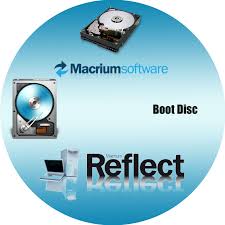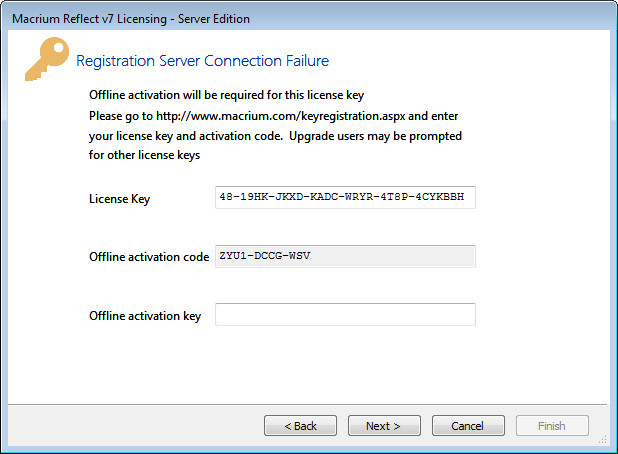

Writing to an unused block is much quicker than an in-use block as it avoids both the slow erase operation and the read-modify-write cycle. This features provides automated SSD optimization resulting enhanced SSD performance and longevity. This significantly reduces the startup time if large (Multi Terra Byte) disks are attached to your system. Macrium Reflect now scans local disks much faster at startup. Retention rules will be applied to all File and Folder backups. When selected, the most recent backup set will be appended to regardless of the folders in the set. Select this option to match on any existing File and Folder backup set in the target folder. Retention rules will only be applied to exact matched backup sets. This is similar to the way Macrium Reflect v5 worked. Select this option to match only existing backups that have exactly the same Folder and Include/Exclude Filters. Strict - Match on backups with the same folders and filters (As Macrium reflect v5).This option allows you to add and remove folders to your backup definition and still maintain a single backup set. Select this option to match if a backup set is found with at least one folder that is selected in the current backup. Similar - Match on backups with at least one matching folder.In v6 there are now 3 types of matching logic that can be applied to backup definitions:
#MACRIUM REFLECT 6 SERIAL NUMBER FULL#
A new Full backup would always be created. This caused a problem if a folder was added to a backup definition or if the include/exclude filters were changed.

In v5 the matching logic checked for existing backup sets that had exactly the same root folders to backup and exactly the same selection/filter criteria. If none can be found then a new backup set is created by creating a Full backup. When creating an incremental or Differential File and Folder backup the backup target folder is scanned for backup set candidates that the new Incremental or Differential backup can be appended to. If an existing locked mutex file is found in the folder then a backup cannot proceed. tmp file deletion, a mutex file ''backup_running" is created and locked in the backup folder. Note: To prevent multiple PC's backing up to the same folder and causing problems with retention rules, consolidation and. tmp files when starting or when creating a new backup to the same folder. To recover space, Macrium Reflect will now automatically delete. In v6, all backups are created with an.'mimg.tmp' or 'mrbak.tmp' file extension and only renamed to.
#MACRIUM REFLECT 6 SERIAL NUMBER PC#
This could happen if your network dropped, your external drive was unplugged or PC turned off before the backup completed. If by removing Incremental backups the backup chain is broken then the oldest retained Incremental is automatically consolidated with the deleted Incremental backups to ensure backup set integrity.Ī common problem with Macrium Reflect v5 customers was that incomplete backups could be left in the backup folder taking up valuable disk space.

The Disk Space Management (DSM) in Macrium Reflect version 5 has been substantially improved in version 6 to provide retention and consolidation of Full, Differential and Incremental backups. Backup Plans can be saved to re-usable templates making backup plan creation a cinch. In conjunction with RDC this makes keeping an up-to-date clone of your system an easier process.īackup plan support allows administrators the flexibility of creating custom backup plans to provide the level of protection they require. See here for more information on how RDC works Scheduled CloningĬlones can now be scheduled to run unattended using the task scheduler. Note: RDC is not available when shrinking partitions during a clone.


 0 kommentar(er)
0 kommentar(er)
